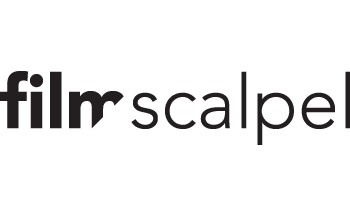Trading Fame For Focus
Sometimes filmmakers are their own best critics. Especially when a skilled interviewer can get an actor or director to offer up answers that go beyond the stock soundbites that most press junkets yield. Dutch filmmaker Peet Gelderblom has taken one such interview with Canadian filmmaker Sarah Polley as the basis for this video essay. Talking to journalist Johanna Schneller, Polley opens up about her career and about the tension between going for commercial success and making artistically interesting choices. (She even mentions her own lack of ambition as a positive influence on the professional path she took). In just under four minutes, we get a sense of the trajectory Polley’s career has followed and of the convictions that guided it. But there’s more to this video.
Gelderblom illustrates the points Polley makes with excerpts from her movies (ten she acted in, one she directed). Peet puts Polley’s money where her mouth is, so to speak. Sometimes Gelderblom explicitly visualizes Polley’s narration, latching onto a specific word and finding examples of it in Polley’s filmography. But the relationship between the off-screen interview and the on-screen visuals is not always that straightforwardly illustrative. Often, Gelderblom goes with scenes that gel with the emotional undercurrent of Polley’s account – as if he is looking for her personal state of mind in her past performances. In some instances, he mischievously uses shots to visualize the subtext of Polley’s account (look for the shot lifted from a particularly unimpassioned sex scene).
Gelderblom’s day job as a freelance filmmaker is evident in the deft editing of this piece. The sound design in particular is refined: the effects are placed meticulously in pauses of the narration and some of the movies’ original soundtracks were replaced with new foley effects to do full justice to Polley’s words. The result is an elegant piece that serves as a gateway into the Sarah Polley’s filmmaking.
It is a modus operandi Gelderblom has used before. In his video essay Redemption Be Damned (published by Little White Lies) he combines Paul Schrader’s gravelly voice with the maverick director’s grating visuals, cleverly remixing scenes from Hardcore (1979). Schrader candidly talks about his directorial methods and morals while Gelderblom recuts George C. Scott’s performance into a mirror image of the spectator. Redemption Be Damned is a video essay that both visualises and enacts the poetics of Paul Schrader. And in that piece too, Gelderblom’s editing skills deliver a polished gut-punch: a video essay that is both conceptually enlightening and morally affecting.
This video essay was published in cooperation with the Belgian platform for independent film criticism Fantomas. Discover more of Peet Gelderblom’s output as a video essay maker on his website.

